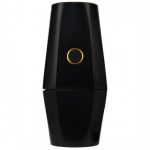A new study conducted by scientists at British American Tobacco has found vapor’s impact on human airway tissue to be minimal in comparison to the smoke produced a conventional cigarette — this in regards to the vapor produced by BAT’s Glo e-cigarette.
Glo is a heat-not-burn (HNB) device that was first launched in Japan back in November of 2016. Essentially, it is what some refer to as a vaporizer or an electronic cigarette.
The BAT scientists studying Glo’s impact on human airway tissue observed changes in only two genes after airway tissue was exposed to the vapor produced by the Glo vaporizer. While any change, however small, may not appear to be a good sign, it’s a mere fraction of the thousands of gene changes that have been observed in tissue that has been exposed to cigarette smoke.
Dr. James Murphy, the head of Reduced Risk Substantiation at BAT, commented on the study’s results in a statement, noting that the difference between cigarette smoke and glo’s vapor on human airway tissue is “striking.”
“Our results clearly show that cigarette smoke triggers a robust gene expression response (…) However, exposure to vapour from glo, a tobacco heating product (THP), has very limited impact on gene expression compared to smoke–there is a striking difference!”
The human tissue exposed to Glo’s vapor in the study consisted of lab-grown human cells used to create a 3-dimensional structure mimicking the structure and characteristics of a living human airway.
The cells were then exposed to vapor and smoke in a fashion similar to how humans smoke and vape. In order to accomplish this feat, the BAT researchers used a robot to mimic the human acts of smoking and vaping.
The study’s findings, which were published in the journal Scientific Reports, add to a growing body of evidence that suggests vaping is less harmful than smoking. It’s also in line with prior research conducted by BAT that found Glo’s vapor to contain around 90-95 percent less toxicants than cigarette smoke.


 The Best Portable Vaporizer Under $150...
The Best Portable Vaporizer Under $150... You Haven't Lived Until You've Tried This Vape...
You Haven't Lived Until You've Tried This Vape... This Automatic Herb Grinder Can Roll You Joints...
This Automatic Herb Grinder Can Roll You Joints...